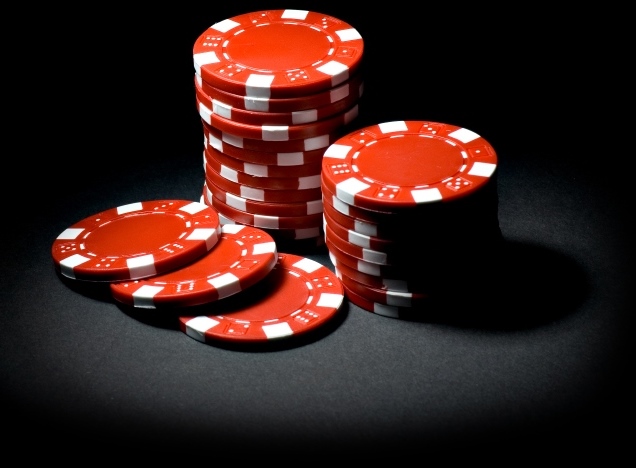- The Reviews
- UNIBET Review 2026
- MANSION Review 2026
- BETSAFE Review 2026
- BWIN Review 2026
- BETSSON Review 2026
- JETBULL Review 2026
- WILLIAM HILL Review 2026
- BET-AT-HOME Review 2026
- ZET Casino Review 2026
- CASINO.com Review 2026
- Mr GREEN Review 2026
- 888 Review 2026
- VEGAS CASINO ONLINE Review 2026
- LAS-VEGAS USA Casino Review 2026
- SUN PALACE Casino Review 2026
- ROYAL ACE Casino Review 2026
- PLANET 7 Casino Review 2026
- CLUB WORLD Casino Review 2026
- SILVER OAK Casino Review 2026
- Free Casino Games
US
- Best Online Casino Games Guide
- Choose Your Best Online Casino
- The Best Casino Games
- Online Card Games
- Best Online Machine Games
- Table Games
- Online Slots
- Complete Modern Online Blackjack Guide
- Free Blackjack Basic Strategy
- Simplified Blackjack Playing Strategy
- How to Play Blackjack Online Like Pros
- Advanced Blackjack Rules and Strategy
- Step-by-Step Blackjack Playing Procedures
- Blackjack Playing Options Guide
- Master Blackjack Card Counting
- Modern Blackjack Card Counters Challenge
- Which is the Best Blackjack Betting System?
- Nine-Count Blackjack Strategy Review
- Blackjack Myths and Errors
- Online Roulette
- Sportsbook
- Online Poker
- Online Video Poker
- Online Scratch Cards
- Online Bingo
- Online Baccarat
- Online Craps
- Asian Casino Games
- Online Keno
- Online Sic Bo
- Casino Bonuses
- Online Casino Reviews
- UNIBET Review, Casino, Sportsbook, Poker & Live Dealers
- BETSAFE Review, Casino, Poker, Live Dealers & Sportsbook
- MANSION Review, Casino, Sportsbook & Live Dealers
- BWIN Review, Sportsbook, Casino, Poker & Live Dealers
- BETSSON Review, Sportsbook, Casino, Live Dealers, Poker
- JETBULL Review -Casino, Sportsbook, Live Dealers
- BET_AT_HOME Review, Sportsbook, Casino, Poker, Live Dealers
- WILLIAM HILL Review -Casino, Sportsbook, Live Dealers, Poker
- ZET Casino Review
- Mr GREEN Review -Casino, Sportsbook & Live Dealers
- CASINO.com Review -Online Casino & Live Dealers
- Las-Vegas USA Casino Review
- Sun Palace Casino Review
- Royal Ace Casino Review
- Planet 7 Casino Review
- Club World Casino Review
- Vegas Casino Online Review
- Silver Oak Casino Review
- Free Casino Games
Slots and the limits of human reasoning
I suspect that Slot Machines are the most frequently misunderstood type of gambling. People do not really understand random chance and therefore hold a variety of naive theories and beliefs about random chance and their ability to win in gambling.
In addition, most people do not really understand machines. How often have you seen people swearing at their cars for breaking down or pleading with their computers to give them back their lost or deleted files?
People often project animate qualities onto machines. In literature, this is called personification, a type of metaphor that helps us understand and relate to inanimate objects. Slot machines appear to take on the myths of gambling and the myths of machines. When you combine this with the absence of accurate information about how they work, the number of myths is not surprising.
The focus of this article will be mainly on slot machines, but other forms of Electronic Gambling Machines, in general, will be considered as well.
- Bonus Amount: $3,000 up to $10,000. The best daily bonuses on the internet.
- Games: An incredible number of slots, table games, and video pokers, including HTML5 games.
- Strong security protocols of 128-bit encryption
- Audited and guaranteed fair by TST
- Website: https://www.lasvegasusa.eu/casino/
- Established: 1999
- Software: Real Time Gaming (RTG)
- US and Canadians players supported
- Platforms Supported: Windows, Mac, iPhone, iPad, & Android.
- Type of Casino: Online & Instant or download.
- Free Slots Games: Yes
- Customer Support: 24/7 live chat support, as well as a toll-free phone number: +506-283-0061, and e-mail support
Write your review of Las-Vegas USA Casino
- Website: http://www.royalacecasino.eu
- Casino Type: download client, instant play, and mobile
- Software: Real Time Gaming (RTG)
- Owner: Emoney Processing Casinos LTD
- Established: 2009
- Casino Promotion: 100% Match Deposit Bonus up to $4,000, Daily and Weekly Bonuses
- Coupon Code: CASINO400
- Currencies: US$, Euros, Yen, Pounds, Bitcoin
- Mobile: both desktop and mobile compatibility
- VIP Program: 5 levels Available
- Support: World Class Support, 24/7 live chat & Toll-free phone number for USA and Canada
- Security: 128-bit SSL encryption
- Certified by: CDS (Central Disputes System)
- Languages: English
- License: Costa Rica
Write your review of Royal Ace Casino
- Bonus: 400% up to $10,000.
- Website: https://www.sunpalacecasino.eu/
- Software: Real Time Gaming (RTG)
- Deposit Methods: ClickandBuy, MasterCard, Money Order, Neteller, Visa Electron, instaDebit, Visa, MST Gift Card, Skrill, Bitcoin
- Withdrawal Methods: ACH, Cheque, Money Order, Neteller, Skrill
- Withdrawal Times: EWallets: 2-5 days, Credit / Debit Cards: 10-12 days, Bank Transfers: 7-12 days, Cheques: 21-28 days
- Pending Time: 3-7 days
- Withdrawal Limit: $5,000 per week
- Games: Incredible number of games of all types
- support: 24/7 through live chat, phone, or e-mail
- Support Response Time: 24 hours via email or Instant using Live Chat.
- Encryption: 128-bit SSL
- Audited and found fair by TST
- Languages: English.
- Progressive Jackpots: up to Million-Dollar.
- Restricted Countries: Bosnia, Costa Rica, Malaysia, Morocco, Netherlands, Russia.
Write a review of Sun Palace Casino
- Bonus: 320% Bonus + 45 Free Spins
- Casino Website: https://www.silveroakcasino.com/
- Casino Promotion: 320% Match Deposit Bonus up to $10,000 in 10 first deposits, up to $100 No Deposit Bonus, Weekly and Monthly Cashback, and much more.
- Casino Type: download client, instant play, mobile, and live dealers
- Software: Real Time Gaming (RTG)
- Live Casino: Available Live Dealers Casino
- Owner: Emoney Processing Casinos LTD
- Established: 2009
- Currencies: US$, Euros, Yen, Pounds, Bitcoin
- Mobile: both desktop and mobile compatibility
- VIP Program: 5 levels Available
- Support: World Class Support, 24/7 live chat & Toll-free phone number for USA and Canada
- Security: 128-bit SSL encryption
- Certified by: CDS (Central Disputes System)
- Languages: English
- License: Costa Rica
Write your review of Silver Oak Casino
- Bonus: First Deposit 350% Bonus + 25 Free Spins
- Website: https://www.planet7casino.com/
- Casino Type: download client, instant play, mobile, and live dealers
- Software: Real Time Gaming (RTG)
- Live Casino: Available Live Dealers Casino
- Owner: Emoney Processing Casinos LTD
- Established: 2008
- Casino Promotion: 200% Match Deposit Bonus up to $4,000, and much more.
- Currencies: US$, Euros, Yen, British Pounds, Bitcoin
- Mobile: both desktop and mobile compatibility
- VIP Program: Available
- Support: World Class Support, 24/7 live chat & Toll-free phone number for USA and Canada
- Security: 256-bit SSL encryption
- Certified by: CDS (Central Disputes System)
- Languages: English
- License: Costa Rica, Cyprus, the United Kingdom, and the Netherlands.
Write a review of Planet 7 Casino
- Bonus: Get 300% Match up to $3000 FREE Welcome Bonus
- Website: https://www.clubworldcasinos.com
- Software: Real Time Gaming (RTG)
- Mobile: Android, iPhone, iPad
- Casino Type: Download, Instant Play, Mobile
- Currency: US dollars
- Language: English
- License: Curacao
- Owner: Club World Casinos Group Casinos
- Established: 2005
- Audit: RTP Not publicly audited
- Currency: US dollars
Write a review of Club World Casino
- Bonus: Get 300% Match up to $3000 FREE Welcome Bonus
- Website: https://vegascasinoonline.eu/
- Established: 1999
- Software: Real Time Gaming (RTG)
- Currencies: US$
- US and Canadians players: supported
- Bonus Amount: up to $11,000 Match Bonus
- Platforms Supported: Windows, Mac, iPhone, iPad, & Android.
- Type of Casino: Download & Online Instant Play.
- Free Slots Games: Yes
- Owner: Main Street Vegas Group Casinos
- License: Costa Rica
- US Customer Support: (877) 691-5124
- Canada Customer Support: (888) 387-6717
- Email Address: [email protected]
- Live Chat: Yes
- Response Time: 24 hours via email or Instant using Live Chat.
- Languages: English.
- Progressive Jackpots: up to 1 Million-Dollar.
Write a review of Vegas Casino Online
Erroneous beliefs and gambling
Problem gamblers may have a wide variety of erroneous beliefs about winning. In fact, most people have a very poor understanding of the nature of random events.
However, problem gamblers tend to have more erroneous beliefs than non-problem gamblers. Most of these errors are based on a fundamental misunderstanding of the independence of random events. Many problem gamblers, for example, believe that, if a number has not come up recently, it is due to come up.
This sort of reasoning actually works in the case of card decks. If you draw three aces out of a deck, your chances of getting a fourth one are pretty small (1/49). Card counting is based on the shift in the probability of specific cards that occurs as cards are drawn without being replaced in the deck.
This is called random without replacement. However, most random events are very different from a deck of cards. Each spin on a roulette wheel or roll of the dice is completely independent of the previous spin or roll. This is called random with replacement. The random numbers drawn on regulated slot machines and other Electronic Gambling Machines in North America are independently random.
Casino Games Blog 2026
The Bitcoin Casino Guide
Random Events
Related to this belief is the view that all random events should look “random,” and therefore people underestimate the chances of repeated numbers, sequences, or other patterns occurring.
Faced with unusual events such as 10 heads in a row, many people will believe either that the coin has a bias (i.e., bet on heads) or that the coin will now start to show a string of extra tails to balance itself out (i.e., bet on tails).
Often these errors are due to a misunderstanding of the nature of long-term outcomes.
From interviews with gamblers, it is clear that many people conceive of the long term as some definite time in the future (e.g., a million flips of the coin) by which the number of heads and tails will have balanced itself out.
In reality, the time frame is infinite.
In addition, the coin is not balanced out in the long term, but short-term deviation from the expected average gradually becomes watered down.
Suppose the first 100 flips of the coin were all heads and then the next 999,900 were perfectly balanced between heads and tails. The initial 100 heads might still be there, but, by the one millionth flip, the difference of 100 would hardly be noticeable. In fact, 3000 more heads than tails would still round off to 50% heads and 50% tails. The difference between heads and tails is not corrected at all, but that difference becomes less noticeable in the long term.
Many of the features of slots are poorly understood by problem gamblers, at-risk players, and treatment providers. Therefore, I believe that it is vitally important to understand how the machines work in order to set up effective treatment and prevention programs. However, in considering the nature of slots, we must keep in mind that misunderstanding of randomness is not unique to slots but is a general feature of gambling.
Was This Helpful?
Recommend us on Facebook










